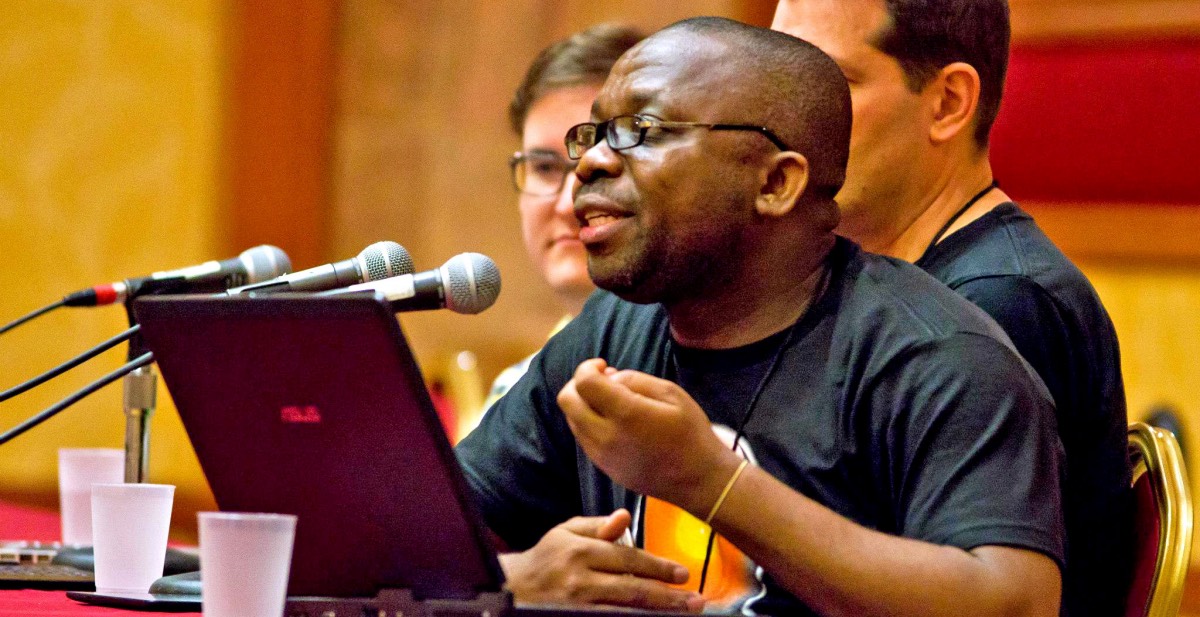Even though witch-hunting predates Christianity and colonialism, persecution of alleged witches in contemporary Nigeria is rooted in Christian teachings and ministrations. Before Western missionaries introduced the Christian faith, traditional cosmologies that reckoned with the occult agency of supposed witches held sway. People accused others of witchcraft. And alleged witches convicted were punished, banished, or killed. Centuries of Christian missionization have changed the coat but not the character of this belief. Evangelization has turned many parts of southern and central Nigeria into a Christian stronghold. Witch hunting has become a part of the Christian church/missionary activity.
Pastors and priests compete to out-witch hunt the other. Churches hold witch-hunting revivals urging believers against principalities and powers of darkness and other witchcraft embodiments. Prayer warriors against witches and wizards feature in the communities, targeting innocent men and women, especially the poor and elderly. Contemporary witch hunters are not only traditional religionists but Christian faithful motivated and propelled by what their Bible says or teaches. Many Christians openly declare without qualms their mission and calling to identify, disable, exorcize, and yes, to ‘suffer not a witch to live’ (Ex 22:18). In many parts of Christian Nigeria, there have been instances of witch hunts by churches, pastors, prophets and other Christian god men and women. Christianity has arguably become an enabler of witch hunts in the country. The abuse of supposed witches has been linked to what Christians do in the name of their faith or god in Imo, Edo, Cross River, Enugu, Ebonyi, etc.
However, over the years, Christianity has changed its teachings and positions on issues. And this historical fact should be a source of hope to those disheartened by the role of Christianity in Nigerian witch hunts. For instance, the Western church played a role in the witch hunts in early modern Europe and colonial America. The church facilitated the arrest, trial, and conviction of alleged witches. But recently, the Scottish church has apologized and regretted its role in the persecution and execution of suspected witches centuries ago. There are ongoing efforts and campaigns in Europe and America to memorialize these victims and acknowledge the injustice and harm caused. In terms of its historical journey, Christianity has made detours here and there; the church has changed its course and direction.
Whether in the West or the rest of the world, Christianity changes and will continue to change its path. The church makes and will make detours to rectify historical injustices like witch hunts. While we wait and nudge the church in Nigeria, and Africa to change course and direction on this issue of witch hunts, it is important to look inward for other mechanisms that could be used to address or contain these abuses.
Christianity is not doctrinally monolithic and contains diverse narratives that could be harnessed and deployed to address witch hunts and other abuses that are often justified in the name of the Christian faith. And the story of the good samaritan could be useful in this respect. The story is about a man who was traveling from Jerusalem to Jericho. And robbers attacked him. He was injured and left for dead. A priest and a priest’s assistant saw the injured man and passed. But a Samaritan came by, saw the man, and took pity on him. He bandaged and cleaned him. The samaritan brought him to a care center and paid for them to care for him.
Many Christians could be the good samaritans to victims of witch persecutions in the country. They could act in compassion in response to abuses linked to witchcraft beliefs. Although the Bible states: “Suffer not a witch to live”, not all Christians believe this as a matter of faith. Not all Christians think that some people could harm them or their neighbors through spiritual or magical means, as popularly believed.
However, many Christians who do not believe in witches are reluctant to speak out due to fear of being ostracised or excommunicated. Many Christian nonbelievers in witchcraft keep mute and refuse to challenge or question witchcraft narratives because they do not want to be branded unbelievers. They do not want to be stigmatized. But like the good samaritan, many Christians can act compassionately toward the accused; they can refuse to pass by or look the other way when they confront or encounter victims of witch hunts. Christians can play the good samaritan in two ways, or at two levels, at the theoretical and practical levels. At the theoretical level, good samaritan Christians should not keep quiet or ignore while witch believers peddle misconceptions, illogical and superstitious notions to justify witch persecution and abuse.
Nonwitch-believing Christians should openly express their skepticism, objections, and dissenting views about the idea of supposed witches flying out at night to harm others.
They should challenge, debate, and debunk mistaken ideas and notions used to justify witch persecutions. Witch hunting starts in the minds of believers. Witch persecution begins in the preaching and pronouncements of the faithful. Good samaritan Christians should not stand by and watch while witch-hunting Christians misquote, cherry-pick, and misrepresent their faith to justify the savage treatment of alleged witches. They should speak out, comment, and argue; they should highlight the absurdity and irrationality of witchcraft beliefs.
More importantly, Christians, like a good Samaritan, should act to defend and protect alleged witches.
Christians should support the accused in repelling and neutralizing accusations and persecutions. Who knows, by doing so, the much needed apology, repentance or regret for the role of the Nigerian, nay, African church, in the persecution or abuses of alleged witches could start.
Leo Igwe, who directs the Advocacy for Alleged Witches, is a human rights activist and the founder of the Nigerian Humanist Movement. He was the Western and Southern African representative to IHEU, the International Humanist and Ethical Union. He can be reached by email HERE.
The opinions expressed in this article are solely those of the author.







